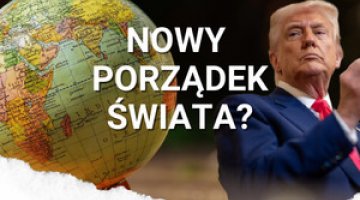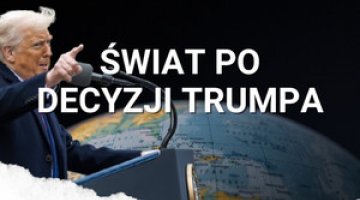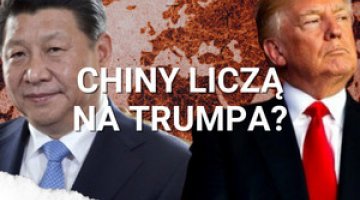Li Hui’s second trip: China’s pretence at mediation on Ukraine
From 3 to 11 March, China’s Special Representative on Eurasian Affairs Li Hui made his second trip related to the Russian-Ukrainian war. Unlike in May 2023, when he first went to Kyiv, he started his latest trip with a visit to Moscow, where he met Russia’s deputy foreign minister Mikhail Galuzin. He then visited Brussels, Warsaw, Kyiv, Berlin and Paris (see Appendix). In Brussels, he also held talks with Gabriel Luechinger, head of the International Security Division at the Swiss Federal Department of Foreign Affairs.
Commentary
- Li Hui’s latest trip, coming just after the second anniversary of the outbreak of the war, was intended as a reminder that there is a Chinese ‘plan’ to find a political end to the war. In reality, however, it is primarily aimed at the countries of the so-called Global South. China wants to portray itself as a pragmatic power that is seeking to broker a quick ceasefire. This is intended to draw a contrast with the attitude of the United States, and in particular its stance towards the Israeli operation against Hamas in Gaza. In this context, Hui’s meetings in Europe were designed to lend credibility to China’s narrative, although that was not an end in itself, as the Chinese government is presumably aware that its offer of mediation will not be taken up. The trip also provided an opportunity to convey the Russian conditions for ending the war to both Europe and Ukraine and build pressure for a ‘compromise’ with Russia. That would lead to a revision of the European security system which could benefit China by undermining the European Union’s cohesiveness and weakening transatlantic relations. Officials from the EU, Poland, Germany and France responded to this with a unified message that emphasised the existential nature of the conflict with Russia for the EU, their commitment to assisting Ukraine, and the negative impact of China’s support for Russia on China-EU relations.
- Ukraine used Hui’s visit to present its own assessment of the current situation in the country and on the battlefront, which is more realistic than Russia’s, and to communicate its unwillingness to enter into negotiations and make concessions to Russia. The hosts showed the Chinese guest the remains of a downed North Korean missile and other pieces of weaponry from ‘third countries’ (possibly Chinese) that Russia had used to attack Ukraine. In this way, they called into question China’s credibility as a neutral state which could act as an intermediary in Ukraine’s possible talks with the Kremlin. At the same time, they reminded everyone that preparations are underway for the Global Peace Summit to be held later this year on the basis of President Volodymyr Zelensky’s so-called ‘Peace Formula’; they also drew attention to the risk of a dangerous incident at the Russian-occupied Zaporizhzhia Nuclear Power Plant and to Russia’s kidnappings of Ukrainian children. In doing so, the hosts outlined the areas where support from China, including through its pressure on Russia, could rebuild Ukraine’s confidence in it.
- Although Russia is aware that China’s actions are just window-dressing, on this occasion it chose to demonstrate its distance from them as a precaution. This was reflected in its handling of the Chinese envoy’s visit to Moscow: minimum publicity, relatively low-level talks, and clear discrepancies in the contents of the communiqués the two sides published afterwards. This stems from Russia’s concerns that China is unable to control the situation; should its initiative receive a positive response, this would put Russia in an awkward position as it is currently not interested in mediation due to its advantage on the battlefield. Russia is also uncomfortable with China’s emphasis on the principle of the inviolability of borders and respect for the sovereignty of independent states, which Beijing sees as an essential part of the narrative it is presenting to the Global South. Russia has also criticised all the Ukrainian-led peace ‘dialogues’, highlighting Li Hui’s reluctance to attend conferences such as the ones that have previously been held in Copenhagen and Jeddah.
- Despite appearances, the Chinese Communist Party’s leadership is aware that its initiative has little chance of succeeding. In the near future, however, we should expect China to make similar moves (probably involving neutral countries), with the aim of taking advantage of the situation on the battlefield to convince as many third countries as possible that its proposal is ‘realistic’. It will also continue to accuse the West of fuelling the conflict, and to echo the Russian narrative. In addition, China may want to use the expected Swiss initiative to simultaneously reduce Western pressure on it to influence Russia.
APPENDIX. Li Hui’s meetings during his second trip to Europe
In Brussels, Li Hui held talks with Niclas Kvarnström, the European External Action Service’s Managing Director for Asia and the Pacific, and Michael Siebert, the Managing Director for Russia, Eastern Partnership, Central Asia, Regional Cooperation and the OSCE. He also had a separate meeting with Simon Mordue, the European Council President’s Chief Foreign Policy Advisor. In Poland, he was received by Władysław Teofil Bartoszewski, the Secretary of State at the Ministry of Foreign Affairs. In Kyiv, he held talks with Andriy Yermak, the Head of the Office of the President of Ukraine; Yulia Svyrydenko, First Deputy Prime Minister and Minister of the Economy; and Dmytro Kuleba, the Minister of Foreign Affairs. He then travelled to Berlin, where he met Thomas Bagger, State Secretary at the Federal Foreign Office. He concluded his trip in Paris where he held talks with Jonathan Lacôte, the Deputy Director-General for Political Affairs and Security at the Ministry for Europe and Foreign Affairs.





